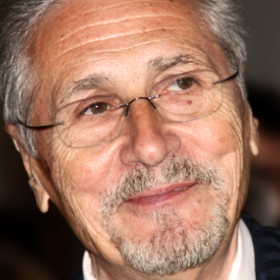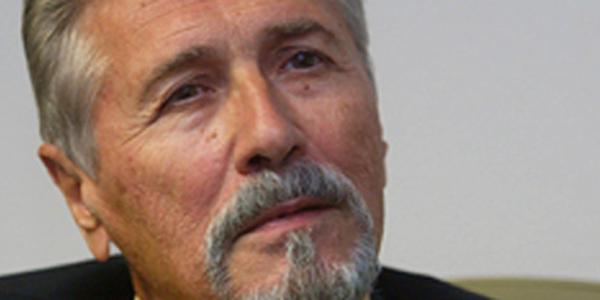Mr. Constantinescu, former President of Romania, is the founding president of the Institute for Regional Cooperation and Conflict Prevention - INCO
Emil Constantinescu was born on November 19th 1939 in Tighina (today in the Republic of Moldova), as the son of an agronomy engineer originating in the southern part of Romania. He attended high school in Pitesti and after graduation he entered the Faculty of Law at the Bucharest University. He got his degree in legal sciences (1960) and was appointed junior judge to the District Court Pitesti. Because of the political climate he gave up this position and attended (in 1961) the Faculty of Geology - Geography, which he graduated in 1966. He is Doctor in Geology of the Bucharest University, Doctor cs Sciences of the Duke University, USA.
Emil Constantinescu went through all stages of a university career as assistant professor, lecturer and associate professor (1966 - 1990). He is, since 1991, a professor of Mineralogy at the Bucharest University. Between 1991 and 1992 he was invited as a visiting professor at the Duke University, USA. Author of 12 books and of more than 60 studies, published in prestigious scientific magazines in Romania and abroad; honorary member and elected member of Geology and Mineralogy Societies of Great Britain, Germany, USA, Greece, Japan, the Society of Geography in France and the "National Geographic" Society in USA. He has given conferences at the Universities of Tubingen, Oxford, Stanford, Harvard, Berkeley, Columbia - New York, Georgetown - Washington, Indiana - Bloomington, Rio de Janeiro, Sydney, Prague, Turku, Cairo, Lublin.
In 1990 Emil Constantinescu was elected Vice-President and further President of the Bucharest University (1992 - 1996). Over that period he was also elected president of the National Council of University Presidents in Romania (1992 - 1996); member of the Steering Committee of the Association of European Universities - CRE (1992 - 1993; 1994 - 1998); member of the International Association of University Presidents - IAUP (1994 - 1996).
Emil Constantinescu was conferred the Romanian Academy Award (1980); Palmas Academicas of the Brazillian Academy of Letters, Rio de Janeiro (2000); gold medals and honorary medals of the Comenius University in Bratislava, the Caroline University in Prague and the University of Sao Paolo; the Arthur Bertrand Medal of the Sciences Academy, Institut de France; medals of the National Institute of Sciences and Arts in France, the University Paris - Sorbonne and the University of Amsterdam; The European Statesman of the Year (1998) awarded by the East West Institute, New York; The American Bar Association Award, Atlanta; The Aristide Calvani Award, Paris; The Award of the Democrat Center, Washington; The Coudenhove - Kalergi European Award, Bern. He is Doctor Honoris Causa of the Universities in Licge, Athens, Montreal, New Delhi, Beijing, Bilkent - Ankara, Sofia, Maribor, Astana, Chisinau, Bangkok, and Ecole Normale Superieure in Paris.
After the overthrow of the communist dictatorship in December 1989, Emil Constantinescu gets involved, together with other university colleagues and reputed intellectuals, in a sustained effort for the democratization of the country, for human rights protection, for civil society establishment. He was among the personalities participating in April - May 1990 in the 42 days long meeting in the University Square in Bucharest, and who founded the association "University Solidarity", as a reaction against the violent acts directed against professors and students by authorities and miners rioting in Bucharest in June 1990. He has also been one of the founding members (1990) of the Civic Alliance, the most important NGO in the country. These associations have joined the democratic opposition parties and have created the Democrat Convention of Romania - CDR (1991). At the proposal of the University Solidarity, supported by the Civic Alliance, he was appointed the sole candidate of the CDR in the presidential elections of 1992. He got into the second round and secured 38% of the votes in the confrontation with the acting President.
Following this first important political experience, CDR elected him its president (1992 - 1996). It was a period of continuous fights for the assertion of the democratic opposition and its government programme. Consequently, the CDR won the local and parliamentary elections of 1996, and, by direct vote, Emil Constantinescu was elected President of Romania for a term of four years.
President Constantinescu has represented his country at the main summits which lead to Romania's nomination as ranking first in a second NATO enlargement wave (Madrid 1997; Washington 1999); to the beginning of EU accession negotiations (Helsinki 1999); to Romania's chairmanship of the OSCE in 2001 and its accession into the OSCE troika in 2000. Bilateral relationships with other states have been substantially improved, and through trilateral agreements the cooperation with neighbour countries from Central and South-Eastern Europe has been developed.
In December 2000, Emil Constantinescu resumed his university activity and his endeavours for consolidating the role of NGOs as president of the Association for Civic Education-ASPEC, of the Romanian Foundation for Democracy - FRD and as founding president of the Institute for Regional Cooperation and Conflict Prevention - INCOR. He is one of the founding members of the Balkan Political Club, a member of its Board of Directors, and member of the Board of Directors of the East West Institute in New York. He was the president of the international commission of monitoring in the parliamentary elections in Senegal (2001).


